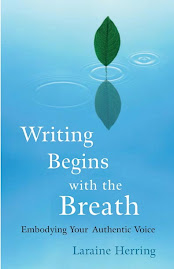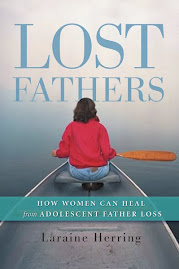Friday, September 2, 2011
I Remember When
Please watch the video above before reading any farther. :-) Mr. Neil Diamond and the unbelievable Barbra Streisand. Take a breath. Remember the 70s fondly. If it made you cry, that's OK. It makes me cry every time I hear it. This time, it made me cry to watch it because of the relationship I saw on stage between the performers. (I know they were performing, but that's fine.)
Writers. Pay attention. This song is a novel. Each character reveals something about the other character through his and her own lines. Each part in this duet enhances the other, and together, we get the whole story of the relationship. There's more sexual and emotional tension between those two on that stage than in many contemporary novels. Yes, the lyrics are melodramatic and probably wouldn't work in a novel verbatim, but look again at the video. The backstory is standing behind each of them. It's the backstory that is not directly revealed that is propelling the narrative of the song. It's the backstory that makes them three, not two, dimensional characters. And it's the multilayered conflict in each character that draws the emotion out of the reader. The specific details of the relationship ground the listener in that song. We don't hear "It makes me so sad that we're breaking up." We get the list of what we'll miss when the relationship is over, the list of what the relationship taught us, and then we get the image that's the title of the song -- "you don't bring me flowers anymore." This image touches each listener who's been in a relationship that slowly begins to transition apart. The action is a negative (not bringing as opposed to bringing). The line speaks of the absence of everything. This is why the song still holds power.
In my classes' writing I see lots of actual sex. Lots of violence. Lots of intrigue and espionage and snarky banter. Lots of convoluted plots. Medieval settings. Torture chambers. Alternate realities and crazy space robots. My intellect might be excited by it for a minute, but I'll forget it soon enough.
What I don't see enough of, and students, if you're reading, I'm begging you, make me feel something ... let me see actual people (or space robots) actually losing something that matters to both of them. No one wins. No one loses. They both are scarred and changed. You don't have to crush a skull with an anvil to make a reader care. Sneak in underneath the reader's armor with actual emotion and they won't know what hit them.
When I read a book where the characters actually make me feel something, I will remember them forever. The most recent book to do this for me was Boy's Life by Robert R McCammon. It had been a long time since a book got me like they used to when I was the age when Barbra and Neil were singing to one another. And it felt. So. Good. Felt. I didn't think -- wow, what a genius plot. Wow, what a complicated world. What fascinating aerospace details. I felt like a human, not a downloader of information when I finished Boy's Life. I felt real. And after I finished crying when that book was over, I was so grateful to Mr. McCammon for giving it all to the story so that readers could feel something authentic. It's harder to do than to create a sterile world or a space robot. It means you have to risk feeling something to write something that evokes emotion. You have to risk vulnerability and ridicule for standing without your masks. But when you read an author who risks it all, you take that story into your cells. You hold it and make it yours. It lives and lives and lives. If you want to write about space robots, make them feel something. And then take something away from them and watch them struggle. Break their little robot hearts again and again and again.
Writers. Give me that. Readers. Demand that. All the information in the world will never evoke a tear, never open a single heart. When information makes you sad it's because of the story you attach to the data, not the data. Writers. Go under the facts. Under the conventions. Under the structure and find the quivering chrysalis of possibility.
Write from there. And remember to breathe.
Subscribe to:
Post Comments (Atom)











2 comments:
Thank you for such a great post. I'm an aspiring writer, and I had the pleasure many moons ago to work for Mr. McCammon. He is the real deal! Boys Life is AMAZING! I write a little blog called where I try to amuse myself...and the one other person that reads it. If you can overlook the typo, unfiltered mess, then I'd love to see what you think.
http://www.homegirlontherange.blogspot.com/
Great Post! ~Tangela
Great post, and so true. There's an old sci fi show from the late 1990s that I still love to watch, not for all the effects, and cool explosions but because the characters (some of them not even actual people) were three dimensional with backstories and baggage that had consequences. The plot was one thing but ultimately, you cared about the characters.
Great reminder for the writers out there.
Post a Comment